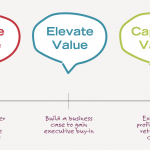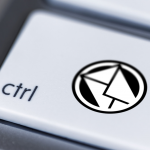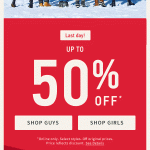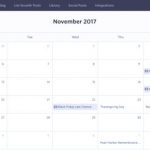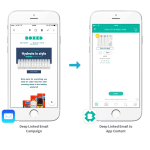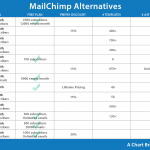Three Insanely Simple Email Templates For Networking With Strangers
Maybe it’s been a few months since you’ve graduated and you’re getting anxious to land a job. Or maybe you’re further on in your career and looking to move into a new industry. In either case, there’s one major hitch: You’ve heard how helpful it can be to reach out to people outside of your network. But the idea of cold-emailing old contacts and people you don’t know at all seems awkward, uncomfortable, and–let’s be honest–pretty much hopeless.
It doesn’t have to be. In truth, contacting strangers for networking opportunities and, ultimately, job leads can actually pay off–just as long as you know what (and what not) to say. And since your goal is just to clinch an opportunity for an offline conversation, the emails you need to write are probably more straightforward–and effective–than you may think.
The Intro Email
Your very first email should be the most thorough, but that doesn’t mean it should be long. Here’s a template you can adapt:
Dear [first name],
My name is Samantha Daniels, and I’m a recent college graduate from the University of Southern California, which I saw you graduated from as well.
I’m reaching out because I noticed from my research on LinkedIn that you work at Edelman, and your career journey is so inspiring. I’m impressed by how quickly you’ve been able to move up within the last four years after starting as an intern before. That would be a dream come true for me.
It would be great to learn more about your experience in the PR industry and the qualities you feel have helped you become so successful since graduating from USC. I’d especially love to hear what it was like starting out as a recent grad and finding your way in the industry.
I would be more than happy to meet you for coffee or at your office or wherever is more convenient for you. Or if you’d prefer a conversation over the phone, please just let me know. I’m very flexible, and even just 15 minutes of your time would be invaluable and greatly appreciated.
Would it be possible for us to find a time to chat?
Thanks so much,
[Your name]
There are three straightforward rules to remember for writing introductory emails like this one:
1. Keep it short—four paragraphs tops—and specific. The purpose of this email is to explain how you found them, why they caught your interest, and what you’d like to discuss with them, without overloading them with too much information.
Start off with who you are and what you have in common. This helps the person feel comfortable and (hopefully) makes them want to continue reading. Plus, relaying why you’re attracted to the person will make later conversations and interactions more sincere and authentic.
But to be clear, your reason for reaching out should be more than, “Can you help me land my dream job?” or, “Will you hire me?” Avoid any wording that sounds like you’re asking for a job interview.
2. Do your research and share what caught your attention. It could be something that inspires you, intrigues you, or motivates you about their career journey. By being explicit about what caught your eye, you’ll have greater chances of building mutually beneficial and genuine relationships with the right people–rather than firing off dozens of scattershot messages to the wrong ones.
3. Always close with a question. In the last paragraph, be sure to always make the ask. Ask to meet in person if you live in the same city, or suggest a phone call if that would be more convenient.
When asking for a meeting or phone call, you want to make it as easy as possible for the person to say yes without having to do too much thinking. Remember, this person is probably busy. The last thing you want is for them not to respond because you made them think twice about how easy it’ll be to fit you into their schedule. That’s why closing the email with the question, “Would it be possible for us to meet?” works, because they can easily reply, “Yes!”
Don’t worry about the specific time and location of the meeting just yet; you just want them to agree to talk with you first. Fingers crossed, once they do, you can then share times that work best for you.
The Scheduling Email
If you reach that stage, congrats! The key here is not to overthink it. Once someone has offered to meet up or chat, keep your second email limited strictly to pinning down logistics. Resist the temptation to dig into any of the topics you’re planning to discuss face-to-face (that will be your chance to impress them, not right now). Try this:
Hi [first name],
So great to hear from you! I would love to meet next week. I’m happy to find a location that’s most convenient for you. I’m free after 5 p.m. on Monday and I’m pretty flexible on Tuesday and Wednesday, but if another day works best I can work around your schedule.
Looking forward to meeting you soon,
[your name]
Done! Leave it at that.
The Follow-Up Email
However, if you don’t receive a response in one to two weeks, don’t take it personally, and don’t be afraid to follow up. Chances are the person may have gotten busy, or your email could’ve been buried in their inbox. I can’t tell you how many times I’ve followed up with someone and received an immediate response. Here’s what to say:
Hi [first name],
I hope your week is going well. I wanted to follow up with you to see if you’d be interested in meeting with me. I’m so impressed by [the reason you stated you were attracted to them in the first email], and I’d love to learn more about [the key thing that you initially mentioned].
I’d be more than happy to meet with you whenever is most convenient for you. However, I’m sure you’re busy, so if your schedule does not permit, I completely understand.
Many thanks again,
[your name]
Be sure to also include the previous email beneath your follow-up email to make it easy for them to refer back to it in case they missed it the first time.
The scary part is drafting an email and pressing “send.” But when you know exactly what to say–and what to avoid–reaching out to people you don’t know becomes a whole lot easier.
Adunola Adeshola is a millennial career strategist and the founder of employeeREDEFINED.com.
Fast Company , Read Full Story
(52)


